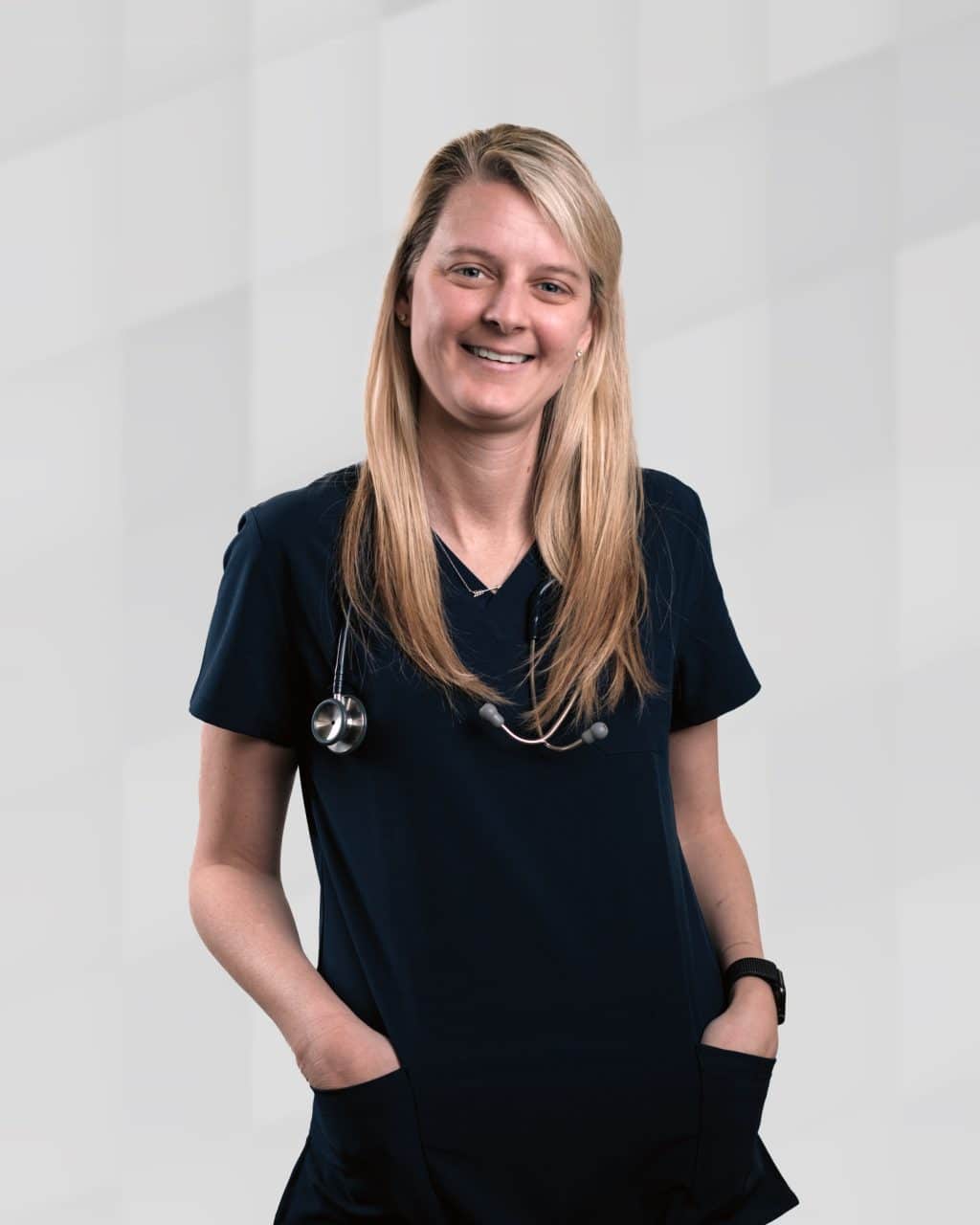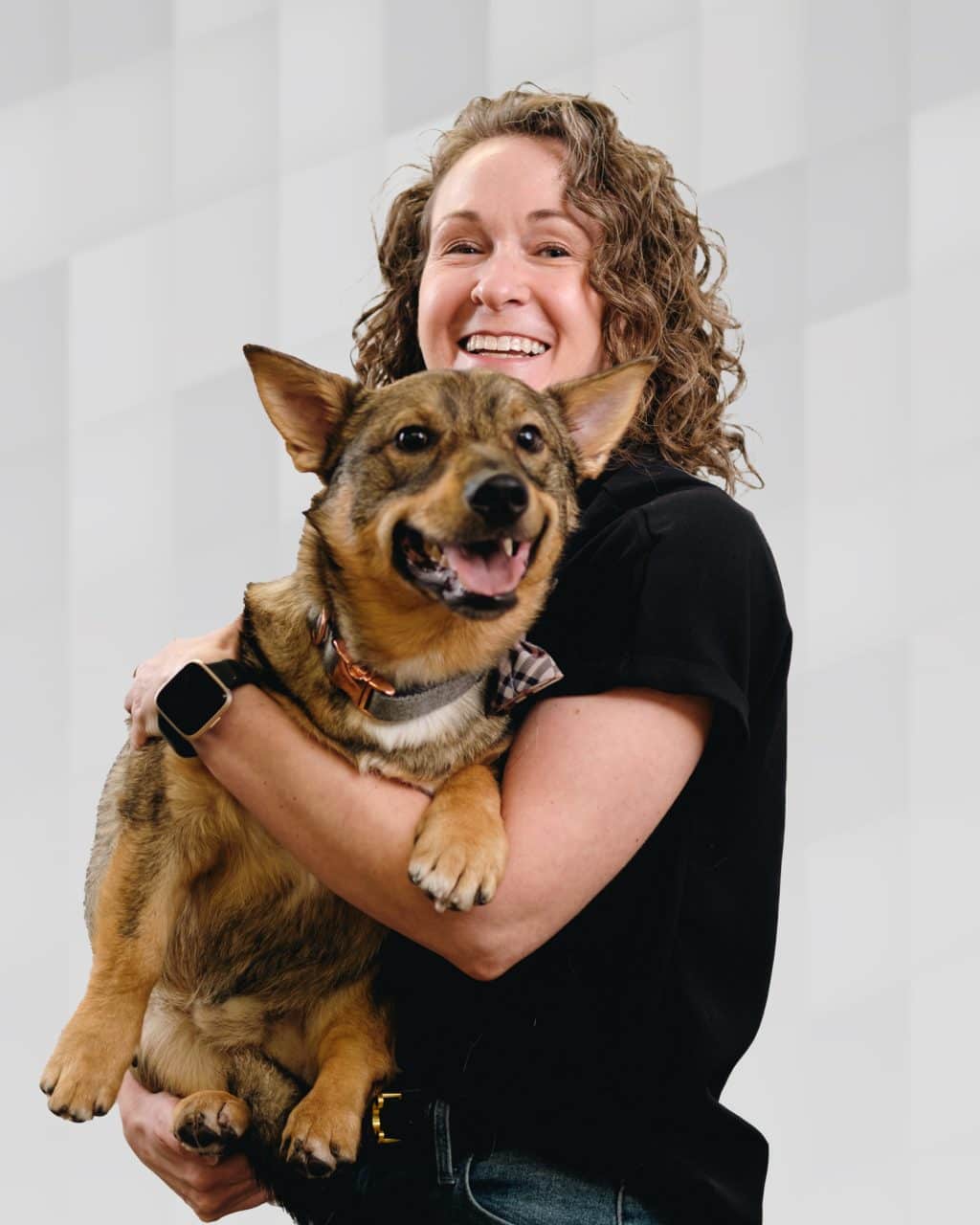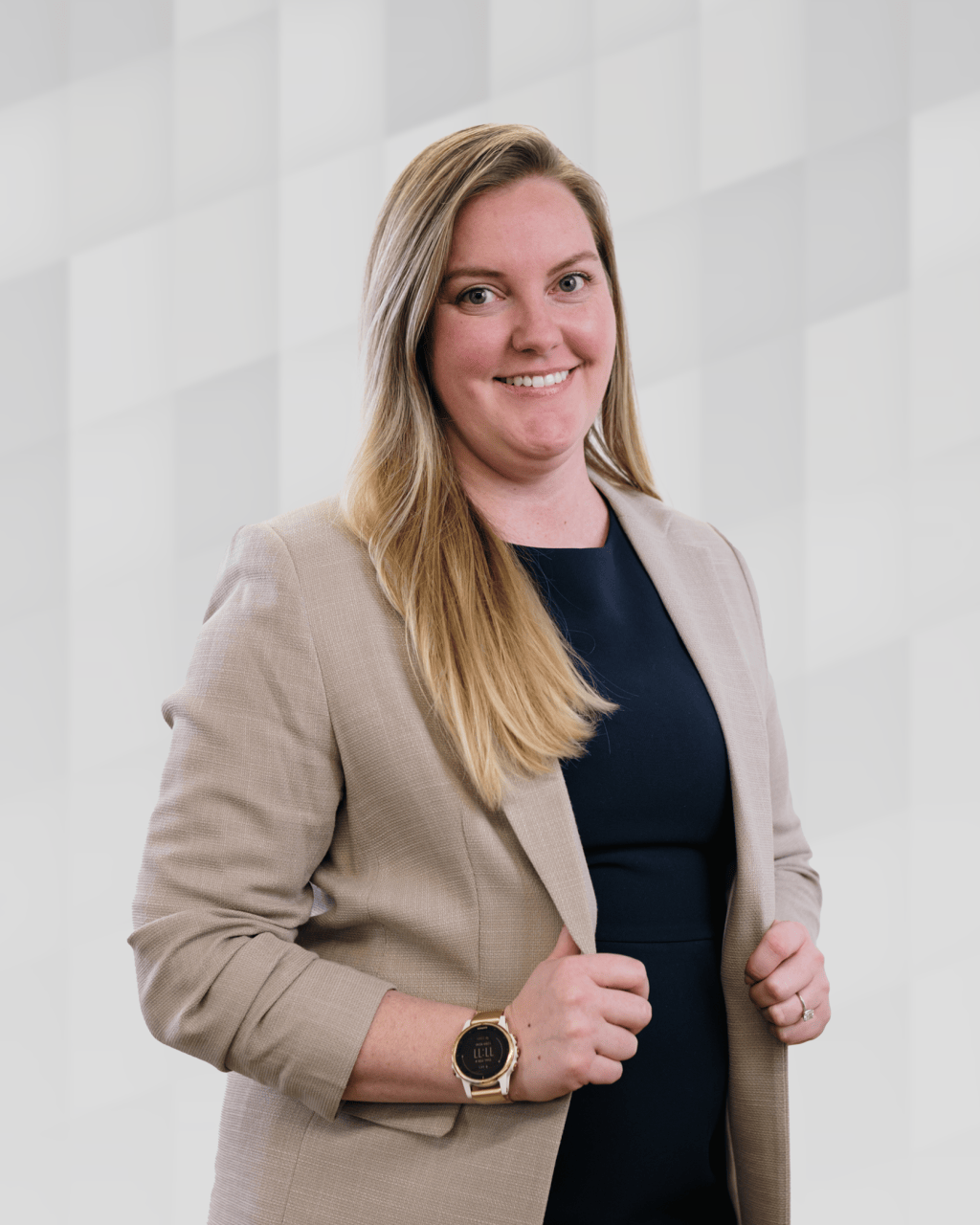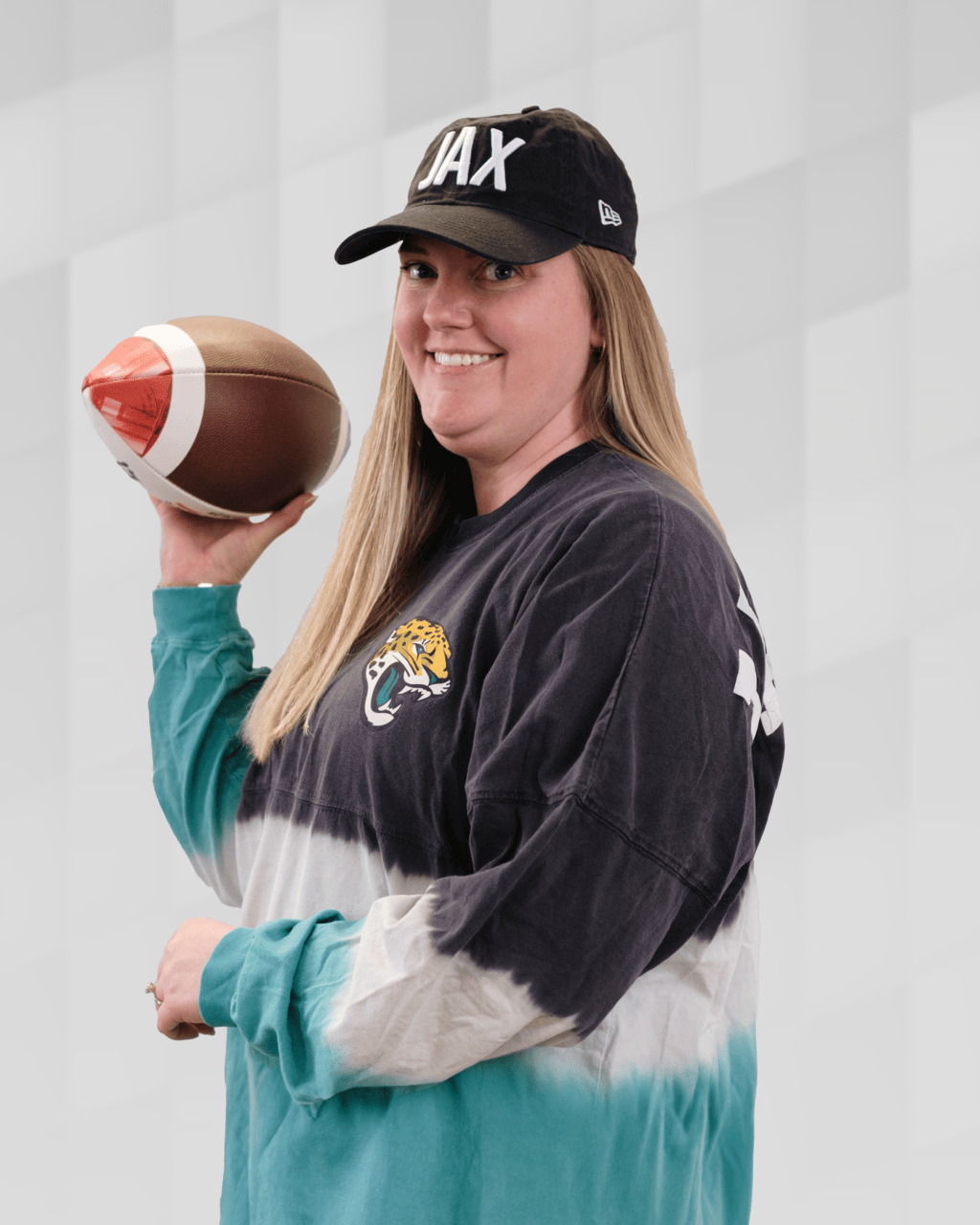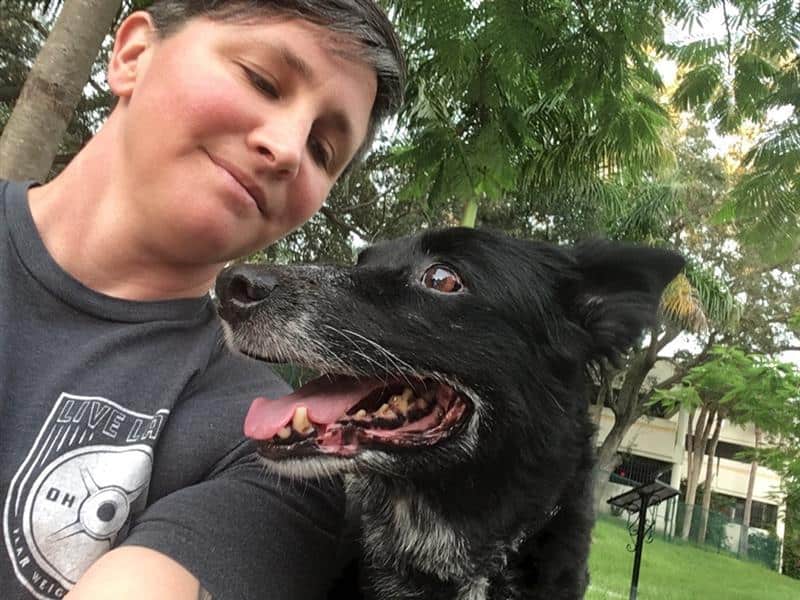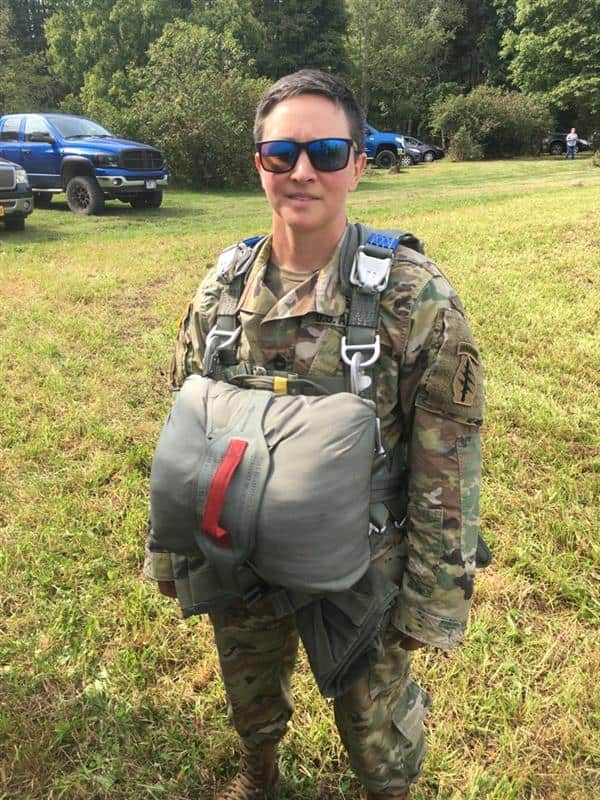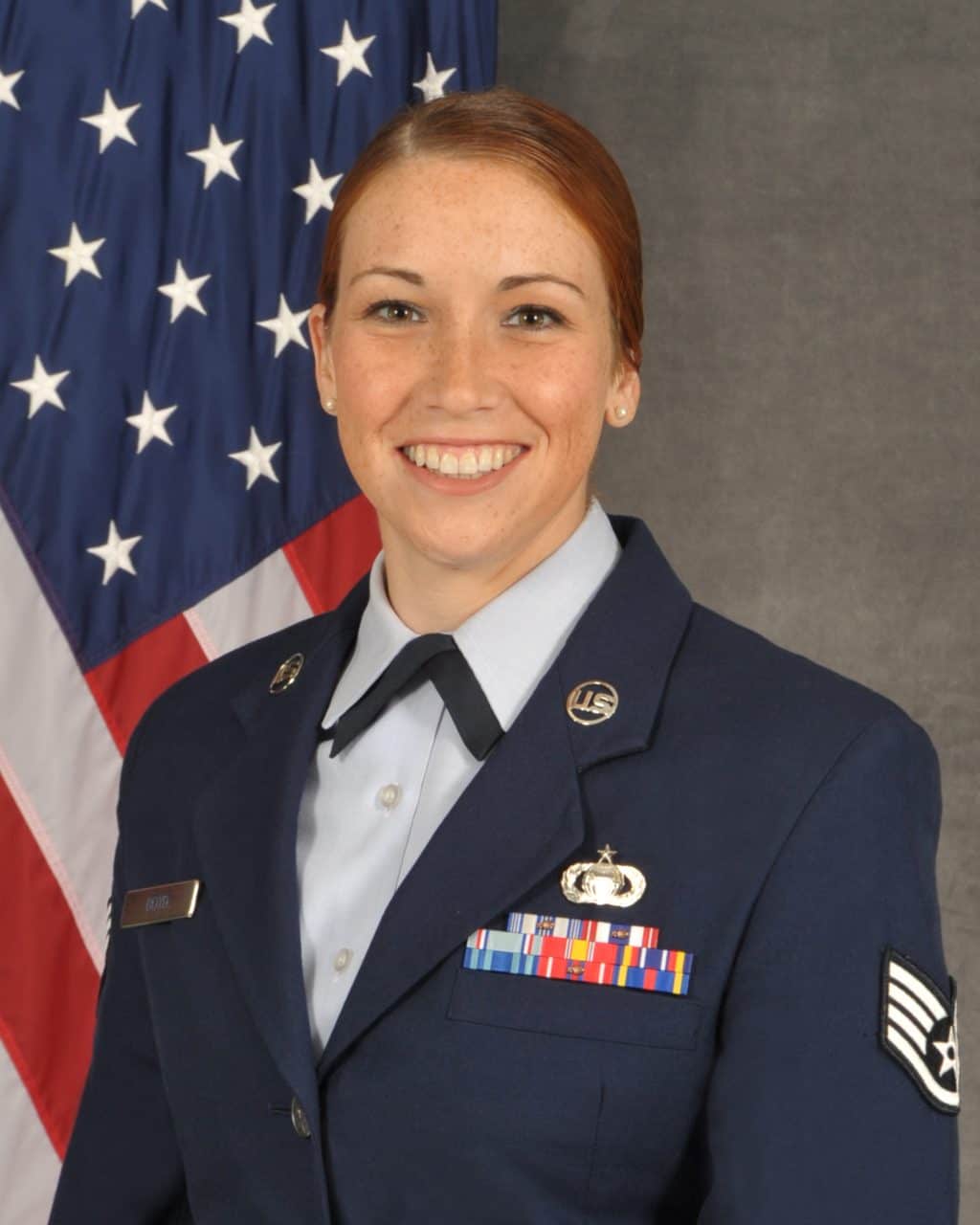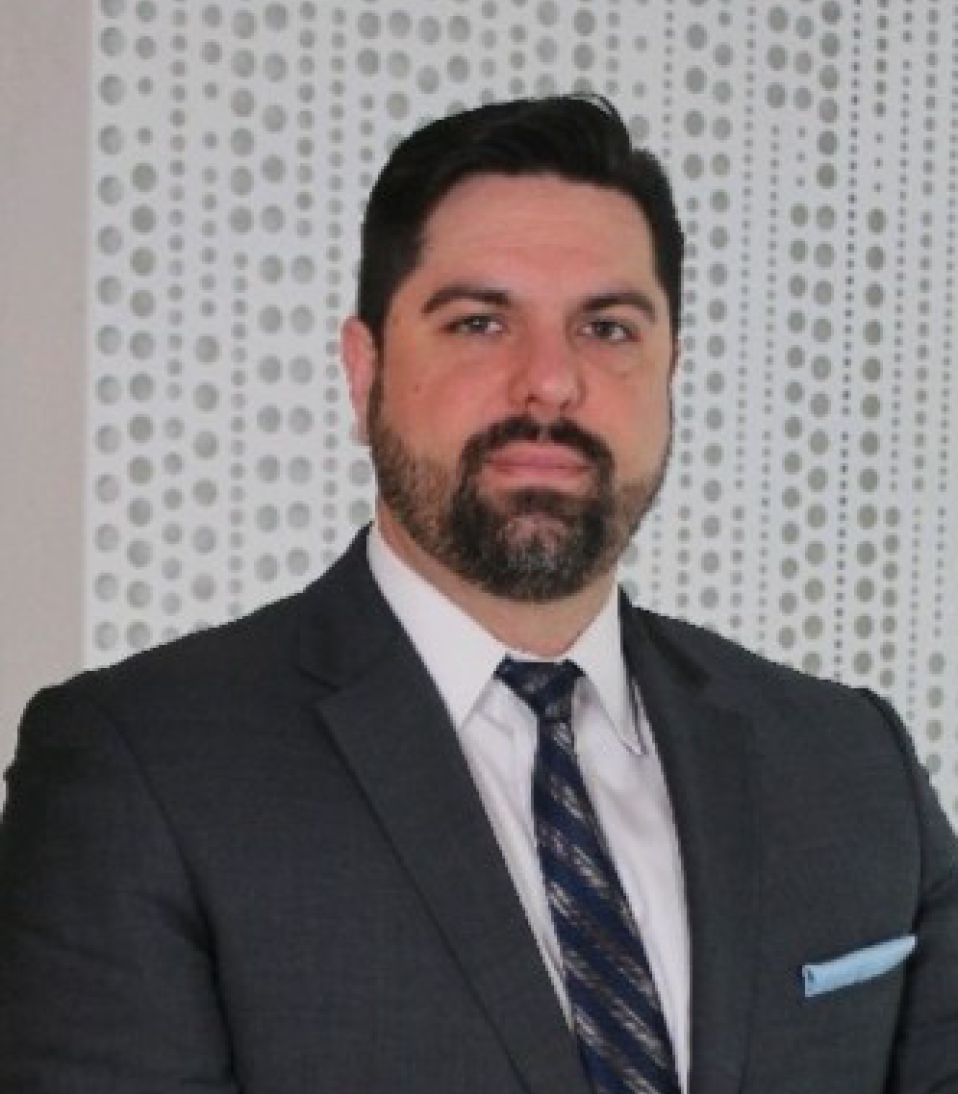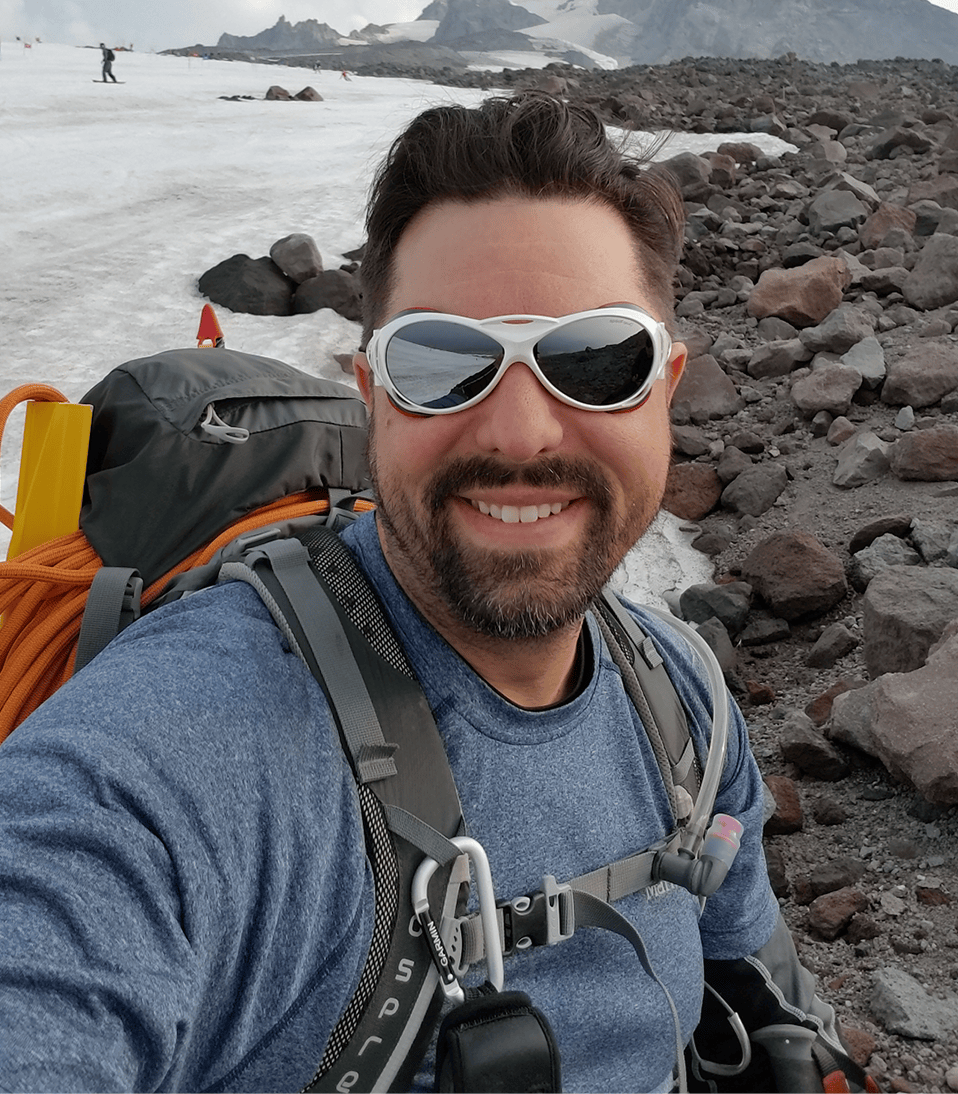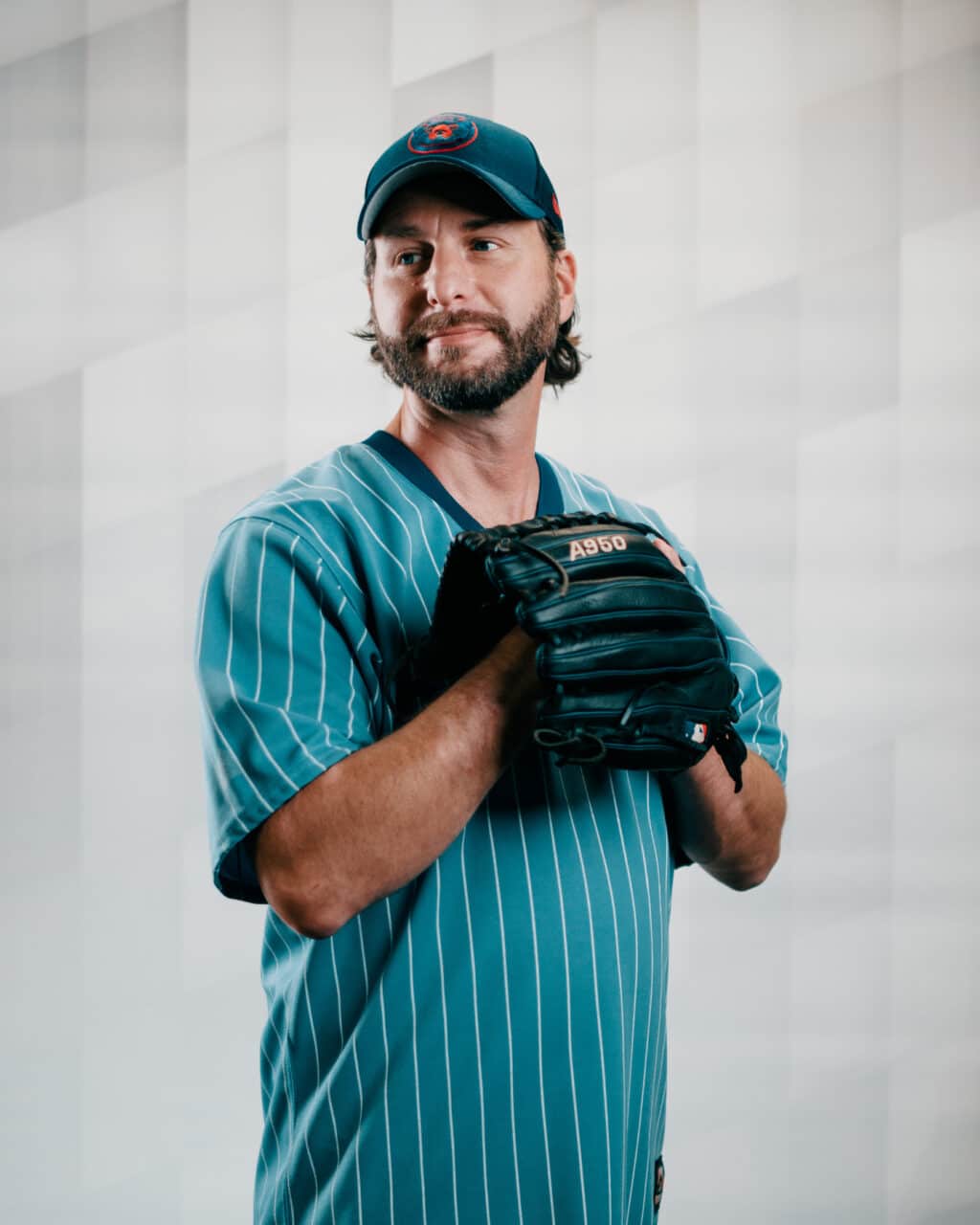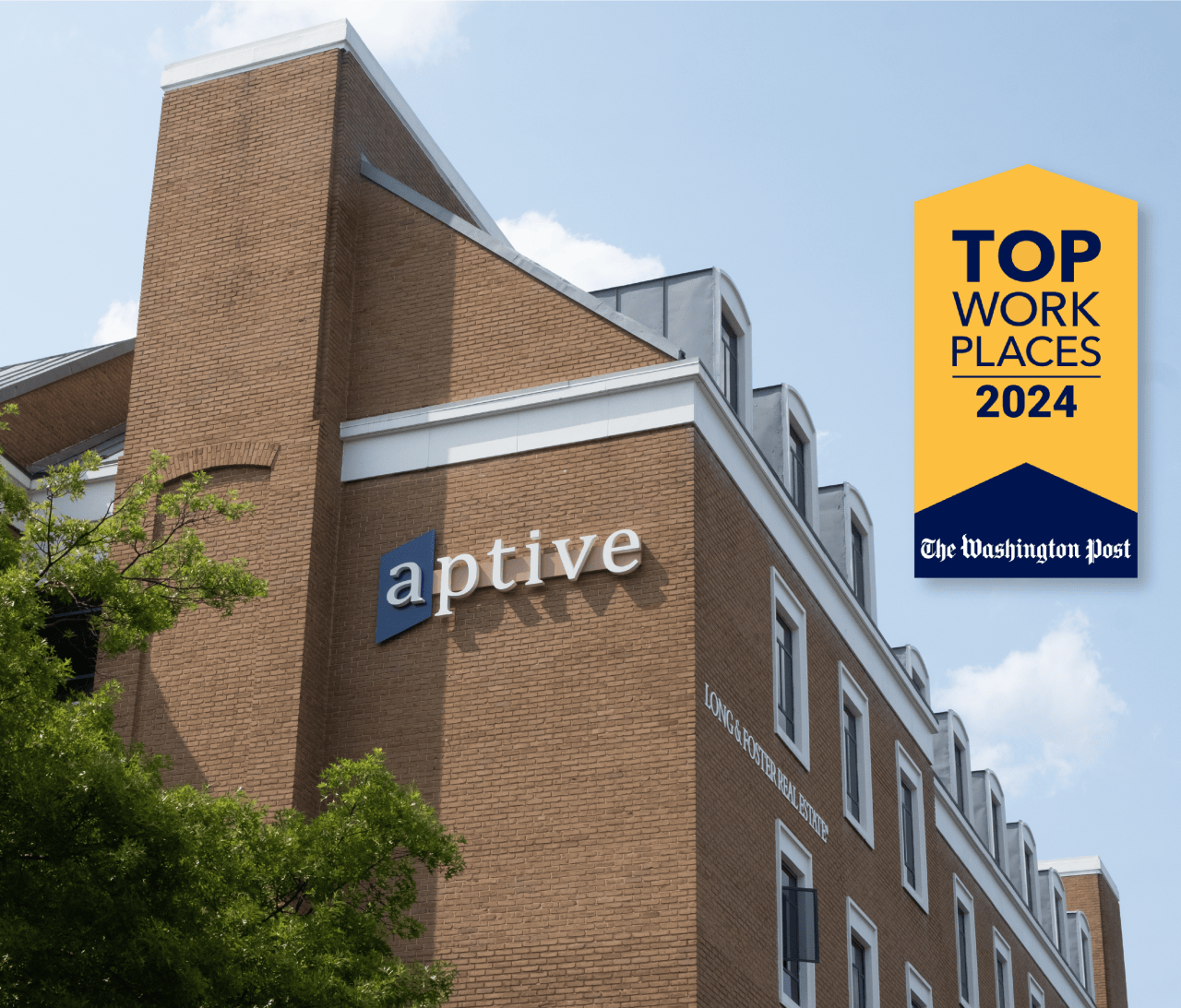The past 15 years have prepared her for a role in Govcon. Read about Imani's journey to Aptive.
Read Full ArticleFor Govcon Newbie, Success Lies in Seeing the End Goal, First

The robust data sets needed to properly power research can be hard to come by, especially in the case of prospective and epidemiological studies. The Veterans Health Administration (VHA) is emerging as a reliable and extensive data cache for researchers who need large, consistent cohorts to answer probing questions with innovative research approaches such as preventing Veteran suicide.
The validity and fidelity of research data, however, rely on proper regulatory processes and oversight. That ensures, not only the integrity of the data and its usefulness to researchers, but also that all Veterans who choose to participate in research at VHA benefit from appropriate review, safety, privacy and compliance, says Aptive Program Director Abby Rosenberg.
In Fall 2020, Aptive began a partnership with VHA Office of Research Protections, Policy, and Education (ORPP&E) within the Office of Research and Development to make VA’s more than 7,000 annual research studies as safe as possible for Veteran participants.
“The analysis will ensure Veterans health and safety is of primary concern, personal identifying information is protected and processes are in place to protect Veterans should a study identify an adverse effect in the course of the research,” Rosenberg said. The partnership will also streamline policies for VA research participants who join studies run by research universities and hospitals who work with VA researchers or in affiliated medical centers.
This project reflects Aptive’s growing portfolio in regulatory, research and evaluation capabilities across the federal health domain. Our team of healthcare analysts, regulatory experts and program managers bring together detail-oriented analytics along with the vision to take that state-of-the-art investigatory infrastructure and apply it in an innovative way.
Aptive’s involvement in the President’s Roadmap to Empower Veterans and End a National Tragedy of Suicide (PREVENTS) initiative, for example, shows how data can be harnessed and analyzed in a new way to ask questions not just about basic science but also meaningful insights for clinicians. By applying a public health lens to this behavioral concern, researchers and providers can capitalize on a deep understanding of Veteran suicide.
PREVENTS has unveiled risk factors beyond mental health diagnosis that are vital for identifying Veterans most at risk. Financial stress, legal issues and other chronic health conditions are at the top of concerns for Veterans at risk of suicide. Because of PREVENTS, clinicians now know to ask Veterans about these issues specifically, documenting them in health records and connecting them to available resources. And those insights may be just the beginning.
“Through the application of machine learning and natural language processing, we can identify high risk language and early indicators of suicide in patient responses,” says Aptive Director of AI and Machine Learning Mike Nemke. Aptive’s analysis capabilities helped support the holistic design of the PREVENTS framework, while Aptive’s long-standing strategic communications expertise is positioned to disseminate that information to providers across the VHA system, private partner providers and Veteran advocacy groups.
The next steps are expanding on work like the PREVENTS study to help automate the delivery to these insights to the health care industry. ” Not only can we identify indicators, but through robust software and robotic process automation, we can empower VA by automating the sending of that information to appropriate individuals with the capacity, access, and placement to connect with Veterans facing this issue,” Mr. Nemke added.
From this innovative approach to quality health data in the PREVENTS initiative, a comprehensive, clear, and up-to-date picture of Veterans at suicide risk has emerged to help VHA end Veteran suicide with Aptive’s support.
Imani Pope-Johns is a seasoned strategic communications expert with 15 years of experience working with startups across sectors, private-sector entities, government agencies and notable public figures. At Aptive, Imani provides senior-level management of various communications projects for clients, including the U.S. Office of Personnel Management, and works closely with her team to monitor financial health and contract growth and compliance. She uses her expertise to ensure communication and design deliverables meet industry standards and best practices and offers insights to advance contract engagement and opportunities for new business.
Imani has a proven history of creating powerful engagement strategies, managing crises, executing strategic initiatives and leading successful media and public relations (PR) campaigns while integrating marketing, social media, corporate, event and reputation management strategies. She most recently served as the Acting Director of Communications and Media Relations Manager of the U.S. Digital Service for the Executive Office of the President at The White House, where Imani was the lead PR advisor and integrated communications manager for 15+ cross-agency projects and products. In her role, she collaborated closely with agencies and offices such as the Department of Veterans Affairs, Federal Communications Commission, Department of Health and Human Services, Centers for Disease Control and Prevention, General Services Administration and the Health Resources and Services Administration to name a few.
Imani has contributed to several successful initiatives throughout her career, including leading organization-wide campaigns, securing thousands of media features, authoring several political statements, speeches, and press-related materials and managing dozens of weekly media requests and outreach for events with tens of thousands of attendees.
Shawn is a mission-focused, results-oriented professional with a proven track record of improving how health and public service agencies operate and serve their clients. Shawn leads, manages and scales the proposal development capacity and capability for Aptive, working across the enterprise with each account to lead the production of proposal content. He coaches and trains staff on proposal development, oversees all proposal activities, ensures alignment with strategy, schedule and price and implements a repeatable bid and pursuit process.
Shawn brings a process-driven proposal response approach that focuses on storytelling and collaboration through techniques such as design thinking to develop winning strategies. He has proven experience providing methodologies, procedures, tools and templates to support proposal efforts while ensuring compliance and on-time completion. Shawn builds and fosters relationships with cross-functional teams and utilizes a collaborative approach to advance Aptive’s business pursuits.
He has held positions at Accenture and McKesson, serving various industries as he worked to advance organizational proposal planning and management processes. Shawn’s leadership extends to past roles where he managed and coordinated internal Community of Practice meetings and served as a career counselor to individuals in the company.
Karen is a distinguished leader with a strategic mindset who brings a wealth of expertise to the events industry. She plays a pivotal role in establishing and enhancing Aptive’s events capability through training, knowledge management, adaptation of new technologies and refining best practices. Karen takes a collaborative approach to cultivating efficient and effective teamwork. Her commitment to fostering trusted partnerships extends beyond her dedication to client service, driving her curiosity for innovation and new ideas.
Prior to Aptive, Karen oversaw the U.S. Chamber of Commerce’s flagship public-facing events, leading cross-functional teams and managing event budgets exceeding $1 million. She spearheaded the Chamber’s transition from in-person to virtual events during the pandemic, producing a range of revenue-driving digital experiences, from the first episodic series attracting 18,000 registrants a week after the shutdown to regular broadcast productions to the Chamber’s first immersive digital event experience. Karen managed a diverse portfolio of over 600 annual events for the Council on Foreign Relations, including high-profile gatherings hosting distinguished speakers, including Hillary Clinton, George W. Bush, Prime Minister Manmohan Singh, and David Petraeus. Karen remains actively engaged as a member of the Capital Chapter of the Professional Convention Management Association (PCMA).
Kelly Smith is an action-oriented leader with over 16 years of experience managing, organizing and executing project and program requirements within various industries, focusing on organic growth, data quality and governance and risk management. At Aptive, Kelly will oversee a portfolio of programs with the aim of enhancing customer relationships and expanding the responsibilities of her teams through innovative opportunities. She will use her insight and knowledge to assist in capture requirements to solicit and bid on new opportunities for Aptive. As a trusted advisor, she fosters trusting and transparent relationships with her team and potential clients, using keen interpersonal skills to understand priorities and pain points that inform and shape business development efforts.
Kelly has supported several large and small-scale information technology projects, providing oversight and guidance to interdependent teams to enhance performance and achieve desired outcomes. She has worked with the Department of Veterans Affairs (VA) for many years and most recently served as a program director for Tria Federal, where she supported the VA Product Line Director in the Office of Information and Technology. In previous roles, Kelly was responsible for organic growth, cost management, knowledge sharing and adhering to the full systems development life cycle, often drawing on agile and lean practices to improve organizational effectiveness and quickly adapt to evolving client needs.
As a growth director for the human experience account, Brian oversees business development activities, building innovation solutions that generate measurable results. Brian and his team create integrated strategies that support Aptive’s business pursuits, including client relations, pipeline management and proposal development. Utilizing best practices such as Lean Six Sigma, SAFe and ITIL, Brian devises customer-centric solutions in business analytics, cybersecurity, customer experience, health and program management that optimize operations and ensure employee success.
In previous roles, Brian led customer, employee and partner experiences for a diverse portfolio, including the Department of Veterans Affairs Benefits and Memorials Program Management Office and Technical Support team. He is well versed in facilitating executive portfolio strategic planning and providing leadership for health care initiatives with the Departments of Health and Human Services and Defense.
Brian has over 28 years of federal program and project management experience. An award-winning leader, he holds multiple certifications and clearances in the federal sector.
Meredith Singh is a change management consultant with over 16 years of experience providing program oversight, educational product development and health care quality data reporting and analysis to federal and non-profit clients. She leads a team of high-performing professionals to support the Department of Veterans Affairs (VA) Veterans Health Administration (VHA) Office of Healthcare Transformation to develop and sustain VHA’s High Reliability Organization enterprise-wide implementation plan. Meredith also leads Aptive’s efforts to support the VA Caregiver Support Program, which offers clinical services to caregivers of eligible and covered Veterans enrolled in the VA health care system.
Meredith has served several federal and non-profit clients, including the Substance Abuse and Mental Health Services Administration and Centers for Medicare & Medicaid Services. Her knowledge of VHA culture and organizational structures enables her to accelerate cultural adoption across targeted stakeholder groups.
She delivers high-quality, timely work products and services within budgets ranging from $25K to $75M and is proficient in managing resources and staff. Meredith has led large numbers of staff across four different modernization efforts, including four partner companies to manage VHA’s Journey to High Reliability, VA Survey of Healthcare Experiences of Patients and Office of Public and Intergovernmental Affairs.
Stephanie Flynn is a Navy Veteran and experienced nursing leader. In her current role as a High Reliability Organization (HRO) Advisor, she supports the Veterans Health Administration’s high reliability transformation. In previous contracts, Stephanie has developed numerous nursing workforce-related environmental scans, literature reviews, resource guides, and implementation plans to advance the recruitment and retention of Department Veterans Affairs nurses.
As an Officer in the Navy Nurse Corps, Stephanie served in many diverse environments, resulting in specialized knowledge of military medicine, psychiatric/mental healthcare services, detention medicine, clinical practice guidelines and HRO Principles. She also regularly advised senior hospital leadership on mental health specific policies, management of patients with suicidal and combative behaviors and use of behavioral health restraints in compliance with Joint Commission Standards. Stephanie’s wealth of nursing expertise allows her to provide realistic and targeted healthcare solutions to all clients.
Brett Sheats is a tactical leader with over 10 years of experience leading and supporting Veteran and disability initiatives in the consulting, government and non-profit sectors. At Aptive, Brett utilizes his strategic planning and project management skills to create course curricula and weekly materials and conduct classes for health employees.
Since starting with Aptive, Brett has used his expertise to support efforts with the Department of Defense, Department of Veterans Affairs, Department of Labor and FBI. He strives to incorporate leadership and management lessons learned from the military, NGO, consulting, government and private sectors into crafting innovative solutions for his federal government clients.
Brett, a certified professional coach, deeply believes in the power of diverse teams and enjoys the challenge of cultivating and implementing effective workforce development initiatives. Prior to Aptive, he was a finance attorney for the law firm of Schulte Roth & Zabel in New York City and a commercial fisherman in Alaska (ask him about salmon recommendations).
Outside of Aptive, Brett serves on the board of directors for an outdoor recreational therapy non-profit focused on kayak fishing for Veterans, first responders and their families. He is a Veteran of the United States Army, serving as an airborne Field Artillery Officer from 2001 to 2005.
Laura Floyd is a results-driven business executive with extensive enterprise information technology (IT) services and consulting experience with Department of Defense (DoD) and federal, state and local government organizations. At Aptive, she supports the Human Experience account, overseeing more than 100 consultants and a vast portfolio of technology, communications, advertising, business operations and human capital projects.
Laura previously worked at CACI where she ran the human capital management practice overseeing some of the industry’s largest software development programs supporting DoD. Prior to CACI, she was a vice president at Perspecta (now Peraton) where she managed the financial and regulatory segment for the organization’s civilian, state and local government group. She was responsible for overseeing operations and growth for a large portfolio of civilian accounts, including the Federal Reserve Bank, Department of Education, U.S. Treasury, Securities and Exchange Commission, Office of the Comptroller and of the Currency, among others. She has more than thirty years of experience with companies that are now part of Perspecta’s heritage, including EDS, HP, HPE and DXC Technology.
Before joining Perspecta, Laura served as the chief operating officer (COO) and managing director for the County of San Diego program and the COO and managing director for the U.S. Navy and U.S. Marine Corps Enterprise Navy Program/NMCI. Laura is a graduate of the ACT-IAC Partners program and also served as an ACT-IAC Board Member.
Geoff Openshaw is an innovative thought leader, S-tier communications wizard, seasoned podcaster, average photographer and eyeroll-inducing campfire guitarist with over 17 years of professional experience in government and industry, primarily in program management, communications, marketing and public affairs roles supporting various federal agencies. At Aptive, Geoff oversees the organization’s five-year, $96M Blanket Purchase Agreement (BPA) with the Office of Personnel Management (OPM), focused on recruitment and branding.
Before overseeing the OPM BPA, Geoff managed Aptive’s recruitment marketing and advertising work supporting U.S. Customs and Border Protection. Previous experience also includes standing up the outreach and communications team at the State Department’s Center for Analytics, successfully developing communications plans for highly visible government customers, including USAID, DoD agencies and the intelligence community and developing new knowledge management tools for the State Department.
Although his entrepreneurial spirit carried him into building brands through thoughtful marketing and branding work, Geoff has a wealth of experience in international affairs, particularly post-Soviet politics and secessionist movements globally. He served as one of the longest-tenured managing directors of marketing and communications in Young Professionals in Foreign Policy’s history and ran the Ukraine desk for the National Geospatial-Intelligence Agency-supported Protected Internet eXchange (PiX) program. He is also an internet meme, but you have to ask.
Ashley Graham brings over 16 years of comprehensive experience to her role, from business development and strategic planning to communications and public policy. In her current role at Aptive, Ashley manages and oversees a diverse portfolio of projects, ensuring seamless client delivery.
Ashley has a strong program and project management background and most recently served as a program/senior manager, administering the organization’s blanket purchase agreement with the Federal Emergency Management Agency. She takes a client-focused approach, working with each to define requirements and successfully deliver products that exceed expectations. Ashley has spearheaded numerous pivotal initiatives across various industry sectors, demonstrating her commitment to excellence by producing tangible results.
Ashley has a history of research analysis, strategic planning, training and cross-cultural business relations with a hyper-focus on project management. She has supported several federal clients, including, U.S. Forest Service, Department of Veterans Affairs, Department of Agriculture and Department of Interior.
James Tessier is responsible for leading Aptive’s growing health informatics practice, working with government and commercial entities to apply data science, augmented intelligence and analytics to transform health care operations and improve patient outcomes. James is a trusted advisor who seamlessly uses health informatics principles to support the research and development of innovative customer solutions.
James is an informatics leader with broad health care experience. As a 25-year Veteran of the U.S. Navy, James has provided surgical nursing, informatics and leadership expertise in a variety of settings both inside and outside of the United States and at sea, providing combat medical support and surgical capability to combatant commanders. His last role in the Navy was as the Chief Health Informatics Officer for Navy Medicine. In his post Navy career, he held a variety of roles in support of informatics initiatives within the U.S. State Department, Department of Veterans Affairs and Department of Defense. Most recently, James was the Chief Digital Officer for XVIVO Services, a surgical practice focused on organ recovery for heart and lung transplantation.
Meghan Dunn brings a strategic mindset and a passion for driving results through innovative media campaigns. With over 14 years of experience, she possesses a deep understanding of the ever-evolving media landscape, from traditional channels to the latest digital platforms including digital programmatic, paid search, paid social, digital video/audio and connected TV. Part artist and part scientist, her expertise lies in leveraging research and data to build and execute campaigns, consistently exceeding client goals and maximizing ROI.
Meghan has supported paid media efforts across various federal agencies including, Department of Veterans Affairs, Department of Transportation, Library of Congress, Department of Defense, Department of Homeland Security, Department of Education and Small Business Administration. Prior to working with federal agencies, Meghan worked in corporate marketing, leading digital marketing campaigns, social media and content marketing efforts. She also worked for Comcast SportsNet Bay Area (now NBC Sports Bay Area), where she developed experiential social media campaigns to give out Oakland A’s tickets.
Corey Smith is a Pharmacy Program expert with over fifteen years of experience planning, developing, overseeing, strategizing, implementing and sustaining enterprise-wide pharmacy programs.
As a skilled relationship-builder, Corey works closely with diverse stakeholders to assess needs, identify challenges, and successfully deliver on organizational missions and objectives by developing unique programs, utilizing theories in education and facilitating significant professional development to impact learning and achievement.
Corey’s expertise includes developing and implementing change management strategies that communicate impacts, mitigate risks and spearhead integration, transformation and automation initiatives within financial, vendor management, procurement and pharmacy in retail and hospitals.
Michelle is an accomplished healthcare quality and project management professional and brings a wealth of knowledge in patient safety, quality, High Reliability Organization principles, survey readiness, performance measurement, process improvement and quality reporting for agencies, including Centers for Medicare and Medicaid Services and The Joint Commission. She has an extensive background in supporting and acting as a data analyst and quality reporting subject matter expert in several electronical medical record implementations and upgrades. Michelle leverages her demonstrated knowledge and experience to support the Veterans Health Administration tackle some of their toughest challenges, such as addressing employee burnout, and improving a culture of safety and becoming a high reliability organization.
Brian is a dedicated manager with over 20 years of experience leading health care projects in commercial, Federal and international enterprise environments. He is a critical thinker skilled in developing and managing multi-sector/multi-disciplinary collaboration while driving successful outcomes. At Aptive, he heads the Council Management Team within the Department of Veterans Affairs (VA) Electronic Health Record Modernization (EHRM) program. Brian’s primary focus is to lead and strengthen the incredible analyst team that drives Aptive’s successful project delivery and to foster a positive and productive relationship with clients.
Brian has a background in hospital pharmacy operations, medical device installation, IT security and revenue cycle management. He has led dozens of multi-million-dollar projects for civilian hospital systems across the U.S., including HCA Health Care, Trinity Health, Kaiser Permanente and Johns Hopkins. His federal experience includes implementing a Federal Project Management Office for Becton Dickinson, helming successful global projects for the U.S. Air Force and driving IT security upgrades for VA, Indian Health Service and Department of Prisons. He has been on the EHRM project since 2019 and is committed to helping his fellow Veterans discover a more uniform, integrated and effective VA.
Jay Callow is a sustainability-focused strategic engagement and program management expert with more than a decade of experience managing multidisciplinary programs for agencies across the federal government, such as the Department of Energy, Department of Defense, Office of Personnel Management and Department of Veterans Affairs. He has successfully led cross-functional teams to deploy innovative solutions that serve clients in the areas of strategic and operational communications, organization development, data analysis, media relations, human capital analysis, change management, digital transformation, technical writing, research and industrial-organizational psychology. As a servant leader with a strategic vision and collaborative approach, Jay oversees a diverse project portfolio. He mentors team members, supports business development efforts, implements emerging technologies to enhance project effectiveness and spearheads initiatives to drive client satisfaction.
Jay’s professional experience includes briefing climate strategy implementation plans to Congress; positioning energy and finance executives as dynamic thought leaders; building brands and stakeholder relationships; developing impactful keynote speeches; engaging with media to generate positive press coverage; executing communication campaigns and web strategies; facilitating enterprise-wide transformation initiatives; delivering culture-shifting workforce engagement products and activities; and fostering partnerships between government, industry and academia.
As Chief Financial Officer, Stephen is responsible for the financial management of Aptive. He leads and provides strategic direction to a team of talented finance professionals and problem solvers covering accounting and controls, financial planning, tax, pricing, project budgeting and risk management, and he partners with business executives to execute our profitable growth strategy and corporate development initiatives.
Stephen is an accomplished leader and has a proven track record of driving strategic initiatives, optimizing financial performance and fostering organizational growth. He has held key roles focused on strategic planning and alignment between financial objectives and broader organizational goals, most recently with KippsDeSanto & Co (Capital One Financial), where he spent nearly 10 years as an investment banking professional focused on advising business owners, C-suite executives and key operational stakeholders across the federal sector through strategic growth initiatives, mergers & acquisitions activity, and other complex corporate transactions, including capital raises.
He has a history of successfully navigating complex financial landscapes across diverse industry sectors and he works diligently with senior leadership and cross-functional teams to guide and support decision-making to help improve financial performance and implement innovative strategies to drive organizational excellence.
Tammy Czarnecki is a registered nurse and former Veterans Health Administration (VHA) executive with over 30 years of experience working for the Department of Veterans Affairs (VA). At Aptive, Tammy leads and develops the organization’s health-related capability areas and fosters innovation across programs. She also spearheads initiatives that advance Aptive’s mission as a leader in health solutions for federal agencies.
Tammy started at VA as a bedside nurse in the Pittsburgh Medical Center and spent the last seven years of her career as Deputy Assistant Under Secretary for Field Operations before retiring in 2023. In this role, Tammy served as the principal advisor to the Assistant Under Secretary for Health for Operations, directing the day-to-day operations of all 18 Veterans Integrated Service Networks, Member Services, VHA Police, Office of Diversity and Civic Engagement and the Office of Emergency Management.
As the Assistant Deputy Under Secretary for Health for Administrative Operations, Tammy managed 10 national program offices, including Occupational Safety and Health, Procurement and Logistics, Emergency Management, Healthcare Technology and Member Services.
Tammy also worked in Clinical Operations, leading the integration and execution of clinical services throughout VHA, and served as the Director of Performance Management for the Office of Quality and Performance, developing national performance measures for VA’s Health Care System.
Taylor Wood is an experienced communication and change management strategist dedicated to building and leading proactive teams that go above and beyond for her clients. She oversees a portfolio of communication and marketing teams across several government agencies, including the Department of Veterans Affairs (VA) and Office of Personnel Management. In this role, Taylor focuses on growing and expanding Human Experience’s event management capability and enhancing Aptive’s recruitment marketing services through implementation of technical solutions.
Throughout her career, she has focused on learning various leadership styles and techniques to help others achieve success. Taylor is passionate about training others to lead with empathy and foster positive working relationships, enabling teams to provide exceptional service to clients. In previous roles, Taylor has led numerous communication teams and enterprise-wide transformation initiatives for the Defense Threat Reduction Agency, Department of the Navy, VA, United States Patent and Trademark Office, Department of Health and Human Services and Department of Energy.
Kim Kinser is a communications and public relations expert with over 18 years of experience advising executives, leading teams and executing strategic communication plans. She has worked across various sectors, including government, healthcare, non-profit and higher education, providing guidance on communications, social media and public relations matters. Kim has a proven track record of leading cross-functional teams, executing global communication strategies and facilitating partnerships.
During her career, Kim has created communications and PR plans for 9.5 million beneficiaries, led teams in reporting and measuring communications effectiveness and ensuring successful client delivery, contractual compliance and contract growth. She manages a direct portfolio of projects across the Departments of Veterans Affairs, Transportation and Energy and supports contract growth within the Human Experience account by performing business development and capture activities in alignment with the account’s portfolio.
Kim’s work has appeared on the White House blog and featured as a best practice in Charlene Li’s book “Open Leadership: How Social Technology Can Transform the Way You Lead.”. She has held previous roles with Deloitte, Humana, CALIBRE Systems and the American Cancer Society.
Imogen Thomas is a seasoned executive with over 20 years of experience in federal acquisition and strategic growth. Throughout her career, she has been dedicated to connecting government leaders with the solutions needed to accomplish their missions effectively. Currently, Imogen serves as the lead for capture at Aptive, where she focuses on developing winning strategies and solutions for strategic growth opportunities.
Imogen has held key roles at ICF, Geocent, REI Systems and The War Room Group, where she has led every aspect of the growth lifecycle. Her expertise extends to leading cross-functional teams in developing complex solutions to challenging problems, drawing on her training in workplace mediation and Agile product ownership. Her track record includes designing and implementing organization-wide growth infrastructure and strategy, building qualified pipelines worth over $1 billion, and securing contract awards exceeding $250 million.
Beyond her professional accomplishments, Imogen has a passion for using government acquisition as a means to support underserved communities. She has cultivated longstanding relationships across civilian and defense agencies and is well-respected within the acquisition community and the broader government vendor ecosystem. Imogen is known for her down-to-earth approach and pragmatic leadership style. She is committed to making a tangible impact in the field of federal acquisition, ensuring that innovative solutions reach those who need them most.
Emily is an experienced leader in contingent workforce solutions with robust skills in management, operations and leadership. She leads a nationwide staffing initiative for the Veterans Health Administration (VHA) where she oversees a program management office and is responsible for organizing, directing and managing all aspects of contract operations. She also designs and implements innovative approaches to manage the 40+ partners, staffing agencies, clinical associations, credential verification organizations and universities that support the VHA initiative.
With a wealth of expertise spanning more than a decade, she has honed her abilities across several sectors. She has overseen portfolios of strategic workforce solutions clients for national hospitals and health systems made up of 150 hospital facilities. She leads cross-functional teams of client-facing individuals to provide exceptional service delivery to clients and collaborates across service lines to provide optimized workforce solutions.
In prior roles, Emily led Managed Service Programs for major health systems with close to 75 facilities across several states. She has secured hundreds of millions of dollars in contract renewals and grown revenue portfolios by 40% and business portfolios by over 350%. Emily specializes in building strong relationships and fostering long-term partnerships, actively participating in fundamental people and process strategy improvement initiatives.
Jon Brooks is a federal leader and U.S. Army Veteran with more than 20 years of experience supporting multiple agencies. At Aptive, Jon oversees a portfolio of health care-related projects and is responsible for the overall management of service delivery, quality, risk and cost control. He monitors and reports on the team’s financial performance, manages resources, builds key stakeholder relationships, leads project teams and mentors a learning culture across the enterprise.
Jon’s work in the industry includes project and program management experience leading large-scale, enterprise-level, transformative initiatives, including health care transformation, supply chain improvement/optimization and IT transformation. He has led teams of 50+ subcontractors and managed a $1.4B prime contract award, including a portfolio of 14 contract/task orders with over $30M in total contract value. Jon also led activities within the full business development lifecycle and designed go-to-market strategies.
In past roles, Jon has supported the Department of Veterans Affairs, the Department of Defense and the Intelligence Community. He has built multi-year pipelines while leading pricing activities and coordinating strategic capture initiatives. Jon’s efforts led to exceeding profitability goals by over 75%, doubling service line headcount and revenue. He is a proven leader who has worked for top firms such as Rios Partners, IronArch Technology, and Deloitte and is highly skilled in developing meaningful relationships and strategic partnerships.
Rahman Dewani, Former Aptive Intern | LinkedIn
Start Date: September 2023-December 2023
Rahman is a dual-degree graduate student at the University of Alabama at Birmingham, pursuing a Master of Science in Health Administration and Master of Business Administration. During his time at Aptive, Rahman worked on internal communications for the EHRM team supporting the Veterans Health Administration.
“This internship has provided an environment for me to gain crucial experience and has helped me grow tremendously. I have not only grown in developing myself professionally, but also as a person.”
In his role, Rahman worked on developing standard operating procedures along with leading key meetings focused on the advancement of the project goal. He also led efforts to support all staff that needed to travel by developing various communication materials.
“This opportunity allowed me to gain further experience on the life of a consultant by having a variety of different exposure points. The culture at Aptive promoted a continuous learning environment which has allowed me to build my network.”
Aja Curry, Former Aptive Intern | LinkedIn
Start Date: January 2023-January 2024
“Throughout my internship, I gained valuable experience in the professional working environment, where I not only learned accounting, but also gained appreciation for Aptive’s company culture and its emphasis on learning and performance. This experience was particularly exceptional because it allowed me to expand my knowledge beyond the gates of college major, transforming me into a versatile student. I am delighted that Aptive has expanded my knowledge beyond the classroom and further encourage my growth as a student.”
Jennifer is a proven leader in the federal professional services industry with over 25 years of experience driving business development, capture operations and corporate development for large international companies, including ICF, Philips Healthcare and Deloitte. She leads business growth activities in partnership with Aptive business leaders, ensures the company continues to create and deliver differentiated solutions and capabilities with an eye toward gaining and retaining competitive advantage and market leadership.
Jennifer is solutions-driven with strong experience adding appropriate growth infrastructure and resources to federal practices as organizations expand. She takes a customer focused approach and is skilled in identifying, establishing and growing strategic partnerships across the industry. Jennifer successfully leads cross-functional teams to support the implementation of strategic initiatives that ultimately increase revenue and market share, achieving key growth targets.
Known for her ability to create and execute impactful account strategies, Jennifer utilizes her background in organizational behavior to tailor responses and solutions to customer needs. Jennifer’s research experience, client delivery skills and extensive understanding of the federal marketplace allow her to accurately and effectively analyze the competitive landscape to shape winning strategies. She has guided small businesses into the mid-size market, coached and led teams on a $1B+ pipeline of sales opportunities, managed portfolios worth hundreds of millions of dollars and assembled multi-functional teams to solve agency-specific challenges.
MBA, Organizational Behavior, The George Washington University
BBA, Marketing, Economics, Temple University
Jennifer Farrell is an innovative learning and development leader who strives to ensure employees have access to the best training and development resources to be successful in their jobs. At Aptive, she leads a team that creates and curates interactive and relevant standardized curricula for 500+ employees and implements learner-centered development initiatives throughout all levels of the organization, collaborating and consulting with business leaders to develop targeted training solutions.
Since her start with Aptive in 2022, Jennifer has established and successfully implemented a Learning Management System (LMS), five communities of practice, an executive coaching program, an internal training academy, administered the employee professional development stipend and managed a comprehensive budget for tools and resources. She also led the Veterans Training Program, comprised of transitioning military service members and Veterans who can pursue project management courses to receive certifications such as PMP, Agile and ITIL.
Throughout her career in government consulting, Jennifer ensured service delivery excellence for global learning and development contracts at the Department of Veterans Affairs, Department of Labor and Department of Defense. She designed and developed a standardized curriculum in alignment with federal guidelines used by 200,000 servicemembers annually and trained hundreds of trainers on the subject matter and adult learning principles. Additionally, as a workshop facilitator, Jennifer coached 6,000 of America’s Veterans through their military to civilian career transition by delivering dynamic and educational planning workshops. She has developed quality assurance programs, prepared contract training infrastructure and materials, built standardized virtual training templates and delivered synchronous onboarding sessions.
Yessenia “Yessie” Castillo is an accomplished health professional, consulting executive and program leader. She leads the growth and operations for Aptive’s Civilian Health account.
Yessie leads Aptive’s efforts with the Substance Abuse and Mental Health Services Administration (SAMHSA) and other federal health care projects. She supports business development activities, including strategic planning and solutioning related to program evaluation, implementation, measurement, public health, mental health, suicide prevention and substance use disorder.
A results-driven self-starter with a proven background in the academic and federal health care sectors, Yessie has over 18 years of experience, particularly in public health, evaluation and data analytics. In previous roles, she supported several Veterans Health Administration (VHA) contracts, primarily focused on mental health and suicide prevention, including evaluating the national rollout of the Women’s Health Transition Training, President’s Roadmap to Empower Veterans and End a National Tragedy of Suicide (PREVENTS), VHA’s Office of Mental Health and Suicide Prevention Clinical Decision Framework, Creating Options for Veterans’ Expedited Recovery (COVER) Commission for VHA and supported the VHA Primary Care Services Office for Post Deployment Health Services.
Dr. Tara Fannon is a human-centered design researcher and educator with 13 years of experience developing and leading high-impact projects in the U.S. and abroad. Her work in education, non-profit, government and corporate sectors has led to actionable changes in the areas of diversity, equity and inclusion; disability accessibility; mental health care access; workplace equity; and environmental sustainability. Throughout her career, Dr. Fannon has published widely and earned grants, fellowships and awards for her research and writing capabilities, including Excellence in Leadership as a market research team leader. Her love of teaching and learning is complemented by a love for mentorship and seeing team members flourish. At Aptive, Dr. Fannon leverages these passions along with intellectual curiosity and creativity, and an ability to build relationships to lead and support the research team and serve clients. Her skills, passions and exposure to different markets enable her to work collaboratively across diverse needs and interests to deliver teams and clients compelling data-driven insights and recommendations.
Caitlin Noffsinger is a government contracting professional who uses her expertise to drive business growth and foster long-lasting client relationships. She supports her team by performing research, working with various stakeholders to gather and analyze business requirements, outlining process definitions and providing key recommendations. Caitlin analyzes solicitation documents to help determine pursuit, and reviews pipeline and customer engagement data to drive process improvement.
She is a high-performing and skilled team player with experience managing a portfolio of government clients, and serving as the point of contact for subcontract needs and escalations. Caitlin’s past roles also included managing project budgets, scope and forecasts; working with clients to negotiate deliverables for new engagements or revamp requirements for existing ones; and completing, tracking and overseeing that they are accurate and completed in a timely manner.
Anusha Sivendra, MHA, Current Aptive Employee and Former Resident | LinkedIn
Resident Start Date: October 2022-September 2023
Anusha is currently pursuing her master’s in health administration from George Washington University. She started interning for Aptive in October of 2022, gaining a vast knowledge of the industry and experience working with government clients.
Throughout her undergraduate and graduate degree studies, Anusha has worked in roles centered around public health and health care administration, enhancing her skills in data analytics, project management and working with teams.
“During my time at Aptive, I worked on the HRO Contract as part of the communications, HABIT, and Maturity Matrix team. I am now transitioning into a role as a Resident for the summer where I hope to continue work on these projects and pursue projects with the Aptive DEI team.”
Anjali Mulloor, MHA, Former Aptive Intern | LinkedIn
Start Date: March 2022-May 2022
Anjali graduated with her master’s in health administration from George Washington University in 2023. During her time with Aptive, Anjali mainly supported the communications team within the broader, National Standards of Practice team in supporting the Veterans Health Administration’s Office of Regulations, Appeals and Policy.
In her role, Anjali worked on planning and leading retrospective meetings focused on team reflection and goal setting to drafting documents such as various communication materials and standard operating procedures.
“This internship exposed me to the federal consulting space and has helped me cultivate valuable teamwork and communication skills that I will carry with me to future roles.”
Zoe Corcoran, Aptive Intern | LinkedIn
Start Date: June 2023
Zoe is a graduate student at the University of Florida pursuing a Master of Science in information systems and operations management. Currently, her role’s largest responsibility is helping to manage SharePoint sites, including building document libraries, managing permissions and increasing usability.
“Interning at Aptive has been a wonderful and enriching experience. I am surrounded by intelligent, hardworking and supportive peers who have created a comfortable space for me to grow professionally. Coming into headquarters has added to my internship experience and is something I look forward to every day. One of the highlights of this internship has been my opportunity to collaborate and work with people I truly admire. I’ve learned so much about the VA, healthcare, and life as a consultant (especially the need to adapt, as projects frequently change direction). I look forward to the rest of my internship and my time here at the company!”
Her role has given her “the freedom and opportunity to take on a diverse array of responsibilities, working on projects from communications, IT and tooling, process improvement and more.” Zoe enjoyed the learning and development courses Aptive offered, such as Consulting Foundations, but also gained valuable experience working on real projects. “My supervisor has done an incredible job by allowing me to shadow others and has given me opportunities to expand my skills beyond the classroom and use them in a professional setting.”
Zoe chose to pursue a career in consulting because she enjoys its fast pace and the dynamic environment of constantly solving new challenges. “With every project, I get the opportunity to expand my network, work alongside incredible people, accumulate skills and expand my professional portfolio.” She was drawn to consulting because there is a lot of variety in the work available, which is extremely important to Zoe’s career. Post-graduation, she hopes to continue in a consulting role and become a full-time Aptivator!
Brian LoVecchio is a business strategist and operations leader with over 20 years of experience leading large-scale transformation programs with federal government clients and global Fortune 500 companies. At Aptive, he oversees a portfolio of projects related to health technology, particularly electronic health record modernization. Brian’s focus is on ensuring successful project delivery, maintaining contractual compliance and promoting growth within his team. Drawing on his extensive consulting background, Brian leads business development activities that expand Aptive’s portfolio with new clients.
Brian’s experience spans a range of areas, including digital product development and management, merger integration, strategy development and implementation and business process redesign. His expertise in management, business strategy, financial advisory and data governance models has contributed to national digital product launches for large commercial companies, provided operations and restructuring guidance for multiple large federal agencies and program offices, and managed the implementation of large-scale technology platforms for both large federal agencies and financial services companies.
Marisa Cole is a strategic powerhouse leading a team of creative thinkers and communicators in strategic engagement initiatives. She oversees project delivery, drives service offering maturation and conducts business development activities for a growing portfolio of contracts across the federal government, such as the Department of Veterans Affairs (VA) and Department of Defense (DOD). She is a skilled writer and facilitator with 20 years of experience mobilizing change in federal and health care environments. Marisa’s areas of expertise include managing strategic communications efforts and directing change management for large scale enterprise-wide transformation initiatives.
Throughout her career, Marisa has supported a wide variety of government clients, including DOD, VA, Department of Homeland Security (DHS), United States Postal Service (USPS) and Federal Aviation Administration (FAA). She is highly skilled in cultivating trusting relationships with clients and colleagues and has a passion for clear communication and transformative change. Marisa’s prior roles focused on advising and coaching executive and mid-level leaders on communications and change management skills and techniques; creating innovative approaches to reach diverse, geographically-dispersed populations; and providing trusted guidance on communication, branding and marketing of organizational initiatives, policies and services. She has spent a significant portion of her career implementing and guiding change management strategy to transform large, integrated health care systems into high reliability organizations.
Stephanie Flynn, Current Aptive Employee and Former Resident | LinkedIn
Resident Start Date: May 2022 – August 2022
Stephanie graduated in August with a MHA degree from The George Washington University. She is a board certified psychiatric mental health nurse and Navy Veteran. Throughout her eight-year Naval career, she served as the charge nurse of a detention facility, clinic manager of an overseas primary care clinic, nurse supervisor of a 258-bed hospital and the unit manager of a 20-bed inpatient psychiatric unit. She is most passionate about serving the mental health population and spent most of her career working in this specialty. Stephanie decided to return to school to earn her MHA to broaden her impact on improving current health care delivery services. When it came time to pursue a Residency opportunity, Aptive was her first choice based on company values and current contracts in the federal health sector.
During her time in the program, Stephanie supported one of Aptive’s new contracts tasked with developing a pilot for a bundled payment model. Some of her other major responsibilities in this role included environmental scanning, assisting with project management plans and various meeting management tasks.
Stephanie began her full-time role with Aptive as a Senior Associate on August 29, supporting projects for the Center for Care and Payment Innovation, HRO and US Navy Bureau of Medicine and Surgery.
“Aptive authentically promotes employee well-being with a strong commitment to building a culture of psychological safety,” said Stephanie. “Aptive leaders are clearly unified when it comes to business development and company culture, and to see the alignment of these two concepts has made this residency an extremely valuable experience.”
Cora Markert, Former Aptive Intern | LinkedIn
Start Date: April 2022-October 2022
Cora is currently pursuing an MHA degree at The George Washington University. She hopes to one day serve as a health care leader, with a particular interest in supply chain operations. Cora holds a bachelor’s degree in Supply Chain Management from the University of Kansas School of Business. During her undergraduate studies, Cora completed two internships with Netsmart Technologies which provided her with great insight into the inner workings of electronic health record (EHR) technology. At that time, Cora also earned her Yellow Belt Lean Six Sigma certification.
During her time with Aptive, Cora also worked on the Veterans Health Administration Specialty Care Program Office project, developing and reviewing business plans for specialty telehealth care services for the Veterans Health Administration (VHA). Her primary responsibility was to act as a fresh set of eyes to capture the perspective of a non-expert, reading high-level documents to ensure language was clear, effective and understandable to the specified target audience.
“My internship experience here at Aptive has been fantastic,” said Cora. “The environment of the company culture is inclusive, enthusiastic and caring. Upon joining my team, I was welcomed with open arms and countless opportunities to learn.”
Anusha Thota, Former Aptive Intern | LinkedIn
Start Date: April 2022
Anusha Thota is a second-year Master of Health Administration (MHA) student at The George Washington University. She completed her Bachelor of Science degree in Microbiology with a minor in Biomedical Anthropology at the University of South Florida. After graduation, she worked as a medical scribe at an orthopedic clinic in Clearwater, FL. Working as a scribe amid COVID-19 pandemic exposed Anusha to the challenges health care facilities endure without efficient administration and management in place, as well as the disparities and gaps surrounding delivery, quality and access to care. Anusha wanted to positively affect and learn more about the administrative field of health care, so she began to pursue her MHA degree. Upon gaining exposure and knowledge, she was drawn to the opportunities within health care consulting as the field allows her to be a problem-solver while making a positive impact within the health care sector.
During her time with Aptive, Anusha has supported the Veterans Health Administration Specialty Care Program Office project that focuses on the expansion of telehealth services for specialty care programs, the identification of sustainable funding models and the development of business plans to help expand telehealth services.
“As an intern at Aptive, I found myself surrounded by mentors who were dedicated to helping me gain a variety of skill sets to succeed in the workforce,” said Anusha. “This internship has given me the opportunity to learn more about consulting within health care than I would have gained in a classroom-only setting.”
Amelia Poling serves as the Director of People Operations at Aptive. She is responsible for leading Aptive’s overall Human Resources (HR) strategy, leadership development, cultural development, compensation and benefits, HR operations, employee relations and security. She works with corporate leaders to build and manage a people-first HR organization that reflects and supports their dynamic needs.
Amelia contributes to efforts that have resulted in: more effective and streamlined companywide talent acquisition and onboarding practices that better utilize technology; expanded hiring of Veterans; an initiative to harmonize compensation and benefit programs across the Company to promote efficient internal movement of talent; and more thoughtful, comprehensive talent development programs. One of her major contributions has been opening an important dialogue between Aptive and its employees through a comprehensive survey that engages employees at all levels and serves as the foundation for future change and progress related to people operations.
Amelia has worked with organizations such as the Department of Defense (DOD), Small Business Administration (SBA) and the Department of Veterans Affairs (VA). She has 12 years of experience building close, collaborative teams through transparent communication and individual empowerment. In prior roles, Amelia oversaw the delivery of risk communications instruction to identify and address concerns, communicate sensitive issues in a public forum and help identify the best formats to share information.
Amelia works to ensure that each department embodies a culture of respect, psychological safety, accountability and engagement across Aptive teams.
Josh Askarinam is a financial expert with 13 years of experience in investor relations; corporate financial strategy; accounting management; financial reporting, modeling and analysis; budgeting; business planning; and process improvement.
Josh oversees Aptive’s financial strategy and serves as a financial advisor to the executive leadership team. He enhances the availability of financial data to help executives make better informed decisions and works to ensure the company remains compliant with Generally Accepted Accounting Principles (GAAP), the Defense Contract Audit Agency (DCAA) and other accounting, auditing and financial regulations. Josh helps establish and implement financial policies, including performing risk assessments and preparing annual budgets and forecasts.
Josh helps preserve Aptive’s financial health by overseeing accounting operations, budgeting, improving financial processes and maintaining investor relations.
Tim Huntzberry serves as Director of Talent Acquisition and leads Aptive’s recruitment and staffing efforts. He works with top executives to develop and execute strategies designed to attract top level performers in key markets throughout the federal sector.
With more than 15 years of experience in the recruitment and career development arena supporting companies including CACI and Masterson Technology, Tim is well versed as a competitive problem-solver and maximizer of strategies and tools designed to attract top level producers and draw new talent to the company. His strong relationships and rich experience in talent acquisition help Aptive continue to build a culture of inclusivity and personal growth, while attracting the talent of tomorrow to meet the evolving needs of our clients.
Tim is a Veteran of the U.S. Navy.
Let's Connect on LinkedInMary leads planning, operating, scaling and maturing Aptive’s corporate support services including human resources, recruiting, facilities, information technology, security and accounting. Mary works with Aptive’s executive leadership and vendors to ensure project delivery teams have the resources they need to support our clients.
Mary has worked in various areas of corporate operations for over 15 years. Most recently, she led corporate operations initiatives at Definitive Logic as the Chief People & Culture Officer. Prior to her role with Definitive Logic, Mary worked at the Transportation Security Administration (TSA), Office of Security Technology (OST) supporting the Assistant Administrator and Chief of Staff. During her time at TSA, Mary partnered with the Office of Human Capital to become an active Conflict Management Coach and facilitator. Mary’s early career experience includes work with nonprofit and education organizations.
An agile business strategist, Dr. Opsahl leads marketing and corporate communications at Aptive. She has 18 years of experience helping federal, commercial and nonprofit organizations achieve objectives through program management, strategic communications and research services.
She is a mission-driven professional known for improving access to and quality of services, designing people-centered initiatives and developing evidence-based, creative solutions. Much of her work focuses on assisting federal health agencies with communicating important information to key stakeholders to effect change. She’s led initiatives addressing homelessness, rural health, public health, PTSD, patient safety, health systems and Veteran services.
Rachael Levine leads Aptive’s quality and compliance initiatives, working across all lines of business and corporate operations to cultivate, centralize, share and leverage information. Known for her solution-oriented, highly organized style of leadership and the ability to apply human-centered design and change management strategies, Rachael empowers teams throughout Aptive to succeed by facilitating collaboration and idea sharing. Rachael institutes procedures, establishes processes and maintains and documents our knowledge base to continually improve quality and efficiency throughout the organization.
Prior to her current position, Rachael led strategic communications efforts for public health, technology, military and federal organizations for more than 10 years. She provided program management, strategic planning, communications and engagement, product development, qualitative research and evaluation, outreach and media relations/public relations support for multimillion dollar national initiatives and campaigns and helped guide senior level staff with creative consultative expertise.
Kathryn (Kat) Dame oversees human resources, talent acquisition, learning and development, employee experience, internal resource management, quality and compliance to design and implement strategies that enhance the 500+ employee workforce’s capabilities, skills and performance. Kat has over 20 years of experience designing and implementing strategies to enhance employee’s experiences, capabilities, skills and performance. She also serves as the executive sponsor and co-founder of the 50+ member Diversity, Equity and Inclusion (DEI) Group, working together to develop and execute a measurable and thoughtful DEI strategy focused on workforce diversity, workplace inclusion and sustainability and accountability. She is also the executive sponsor to the Aptive Cares program, which focuses on employee volunteers to support community engagement and service activities that align with our corporate values.
Ben Barker is an experienced industry leader with over 16 years of success across the federal government contracting landscape. As Chief Strategy Officer, Ben helps guide Aptive’s corporate strategy and leads Aptive’s Growth Team, providing oversight, guidance and technical direction for Client Development Leads, Capture and Proposal Managers, Solution Architects and Writers. Ben assists Aptive in expanding its footprint in the federal government while focusing on innovative customer solutions.
Ben is an accomplished executive with expertise in technical program management, solutions engineering, leadership, and corporate strategy. Within these focus areas, he has led and managed initiatives for companies like GovCIO, Leidos and ManTech. Most recently, Ben was Chief Technology Officer (CTO) and Senior Vice President (SVP) of Growth & Solutions for GovCIO, resulting in private equity sale to Welsh, Carson, Anderson & Stowe (WCAS).
Seth Niman leads Aptive’s media team, delivering marketing solutions and strategies to our federal and commercial clients. Seth and his team have extensive expertise in planning, negotiating and optimizing advertising campaigns designed to achieve their customers’ goals with specific, measurable results.
Seth applies a holistic approach to planning and buying across the media landscape, including digital programmatic, paid search, paid social, digital video/audio, connected television, out of home, print, television and radio. He utilizes a research-oriented process to develop the ideal media and advertising strategy, selecting the channels that align with the client’s overarching strategy and advancing their marketing objectives.
With more than 20 years of experience as an advertising, media and marketing professional, Seth has supported the branding, recruitment and product marketing efforts for Fannie Mae, McDonald’s, Cava, Department of Veterans Affairs (VA) and Department of Homeland Security (DHS).
Kaveh is a creative visual storyteller with extensive video production experience, both in studios and on location. His role is to direct, manage and oversee video production and visual storytelling strategy at Aptive and to help enhance and elevate visual direction for creative campaigns nationwide. Over the past 15 years, Kaveh has been a part of teams and organizations that tell effective stories, conceptualizing creative ideas while thinking outside the box to showcase the most innovative stories, brands and campaigns. At Voice of America, he co-created the ‘People in America’ series, which became one of the most popular and widely watched visual series for TV and online platforms. At USA TODAY, Kaveh helped build and create the foundation for digital video franchise storytelling. At Moko Social Media, he helped build the video department from the ground up and created visual franchise series for all of its verticals.
Kaveh’s core passion is to create a safe, collaborative space for storytellers and creatives that helps foster vision, inspiration and creativity. “As creatives, we do our best work when we come together and that’s exactly what we’re building at Aptive and what sets us apart.”
Taylor Grant is a creative leader and experienced designer who applies human-centered design to produce innovative and impactful visual communication materials. Through strategic oversight, she ensures the creative team develops engaging brands and campaigns that achieve client goals while informing, inspiring and encouraging action. She creates thoughtful brand identities, paid media, social, events, out-of-home advertising, websites and outside-the-box creative executions that connect with target audiences and leave a lasting impression.
Taylor has more than 12 years of experience in visual communications and her eye for design and prior work with federal agencies provides Taylor with the ability to lead, support and serve Aptive’s creative team.
Emily Howell is a research-driven communications strategist and business development specialist with a decade of experience leading multimillion dollar campaigns for federal clients. Emily uses her background in service delivery for agencies such as the Departments of Transportation and Veterans Affairs, National Institute on Drug Abuse and the Substance Abuse and Mental Health Services Administration to identify client pain points and develop high-quality, innovative solutions. She has overseen the capture, bid and execution of hundreds of millions of dollars of communications and marketing projects throughout the federal government. She excels at building relationships with partners and clients and developing teams that drive results.
Max Entman is a proven communications and marketing leader with a track record of launching strategic, results-driven campaigns and public awareness programs. He guides project teams as they deliver strategic and innovative solutions to Aptive’s clients. He also leads business development activities, helping Aptive expand its strategic communications and recruitment marketing footprint across the federal government.
He has over 13 years of experience in the communications and marketing field with a focus on delivering digital and creative solutions to accelerate innovation and transform target audience behavior. In addition to experience with numerous federal agencies, Max brings the perspective of leading work with large corporations and leading non-profit organizations to the development of solutions for Aptive’s public sector clients. From enterprise website transformations to targeted digital campaigns with multimillion-dollar budgets, he leads teams to drive business value for Aptive’s clients.
Chris Hysick is a proven digital and information technology (IT) expert with over 30 years of experience in the industry. Chris leads a comprehensive IT team in delivering innovative, secure solutions to Aptive and its project teams, in addition to maintaining corporate certifications to remain compliant and certified to work. One of his specialties is collaborating with executive leadership and communicating their IT business concerns and objectives throughout all levels of the organization, delivering accurate and suitable information for every employee.
Chris leads the efforts for Aptive to become certified and maintain certifications in CMMC 2.0, ISO/IEC 2000-1:2018 and ISO/IEC 27001:2013. He is largely focused on assisting Aptive’s Digital Transformation services area, working closely with leaders to reduce overhead and help pinpoint valuable areas in a path forward.
Prior to working for Aptive, Chris worked in an IT support role at a company where 15 years later he became a part owner. He then moved to a role that involved overseeing a team of up to 13 people, managing technology infrastructure and operating co-located data center operations. Chris joined Aptive in 2020 and led an effort using gap analysis to understand the company’s IT deficiencies. As a result, he implemented one of the company’s first major project improvement software systems, which Aptive still uses today.
Let's Connect on LinkedInAri Friedman has over 15 years of experience managing complex federal projects, with in-depth policy research and programmatic assessment knowledge and the ability to shape and direct implementation of project activities across national organizations. A proven expert in building and leading project teams within high-pressure environments, he brings expertise in measuring outcomes, process improvement, data management, qualitative and quantitative performance analysis, report development and executive briefing and legal analysis. Ari leads a team of more than 80 management consulting professionals within Aptive’s Veterans Health account providing program management, assessment and implementation support for several high-profile Veterans Health Administration initiatives, in addition to supporting emerging and urgent priorities.
Dr. Sanders has 16 years’ experience leading public health and health care initiatives in the public sector. She has led high-impact projects centered around several preeminent health concerns, including suicide prevention, mental health, emergency preparedness and response, women’s health, Veteran and Service member health, childhood obesity and rural health.
Dr. Sanders has demonstrated subject matter expertise in secondary research, program evaluation and measurement, strategic planning, program management, health information management and revenue cycle management, qualitative and quantitative data collection and analysis, health communication, change management, performance improvement, technical assistance and translational science. She has applied these skills in her support of several clients, including the Veterans Health Administration (VHA), Defense Health Agency (DHA), Department of State (DOS), Centers for Disease Control and Prevention (CDC) and the Assistant Secretary for Preparedness and Response (ASPR).
Kay Bagchi provides leadership in client service delivery across Aptive’s Veteran health account for capabilities and solutions in strategic planning, program and project controls, enterprise-wide program integration, program evaluation, Congressionally mandated reporting, governance, data analysis and organizational change management support. Kay has more than 20 years of consulting experience spanning federal government clients such as the Veterans Health Administration, the Food and Drug Administration, National Institutes of Health, Department of Treasury, Internal Revenue Service, General Services Administration and commercial clients in the finance and health sectors. She leads Aptive’s Mental and Special Population Health Capability Group.
Abby Rosenberg helps clients address challenges, implement organizational improvements, communicate effectively and improve health care access and equity. With nearly 15 years of federal consulting experience, Abby leads technical assistance, health education, research and evaluation and program management projects, using data to drive decision-making and impact. She supports projects for the Department of Veterans Affairs, Defense Health Agency and Department of Health and Human Services.
Clive Ballard is responsible for the continued advancement of Aptive’s Veteran health services, providing strategic direction that ensures Aptive’s cutting-edge health care solutions and capabilities remain firmly focused on Veteran-centered outcomes.
With more than 20 years of commercial and federal management consulting experience, Clive brings a wealth of experience in the design, planning and implementation of strategic plans, management system frameworks and other mechanisms focused on continual improvement, mission enhancement and operational efficiency—particularly in the health care and hospital settings. Through his work with numerous federal clients, Clive has led delivery of, and served as a technical advisor for, national strategy, policy and guidance; program evaluation and performance measurement; multi-stakeholder working groups and technical advisory committee facilitation; and enterprise-wide program implementation efforts.
Prior to joining Aptive, he was a Senior Manager in Deloitte’s Operations Transformation practice, leading efforts across federal health accounts and within the Quality, Safety and Improvement Offering.
Jordan Atkinson is a seasoned business development professional who brings 14 years of experience in federal contracting to Aptive’s management consulting work. Jordan manages and executes the full business development lifecycle across multiple simultaneous pursuits and proposals as well as facilitating growth, fostering relationships and establishing value-added teaming strategies. He helps build a qualified pipeline of opportunities in addition to helping shape customer requirements, translate customer needs into actionable features, drive differentiation and create compelling value propositions. Jordan focuses on developing a pipeline for Aptive with the Department of Homeland Security (DHS), formulating and implementing an integrated business development strategy that provides a clear path forward for Aptive with DHS.
Jordan has experience working with DHS since 2010, focusing on multiple capabilities, including command, control, communications, computers, cyber, intelligence, surveillance and reconnaissance (C5ISR), cybersecurity, information technology, weapon systems sustainment, acquisition program management and resource management. Jordan brings additional expertise in planning and implementing continuous process improvements for enterprise-wide business development tactics, techniques and procedures.
Jordan has overseen identification, qualification, capture, bid and execution of hundreds of millions of dollars of work across the DHS enterprise. Jordan brings an extensive network, cultivated through years of participation in industry associations and events, which he uses to build winning teams who provide industry-leading services to the government. Through his time as a government contractor, Jordan has formed a detailed understanding of the government’s needs, objectives and priorities and works tirelessly to improve his team’s position for each opportunity.
Rachele Cooper founded Aptive with a goal of leveraging technology and communications to improve organizational performance and support our nation’s Veterans.
With this mission in mind and using skills acquired over an eclectic career — serving in the military, working as an engineer at the Naval Research Lab and leading national marketing and communications campaigns — Rachele and her team offer Aptive’s clients fresh perspectives, unique insights and committed partnership.
She’s led complex, high-profile engagements spanning health promotion and disease prevention, strategic communications, technology transformations and organizational change management. Since forming Aptive her work has impacted health care modernization, the opioid epidemic, Veteran homelessness, suicide prevention, access to care, health technology and national defense. Rachele is a member of the Elev8 Advisory Council.
The past 15 years have prepared her for a role in Govcon. Read about Imani's journey to Aptive.
Read Full Article













